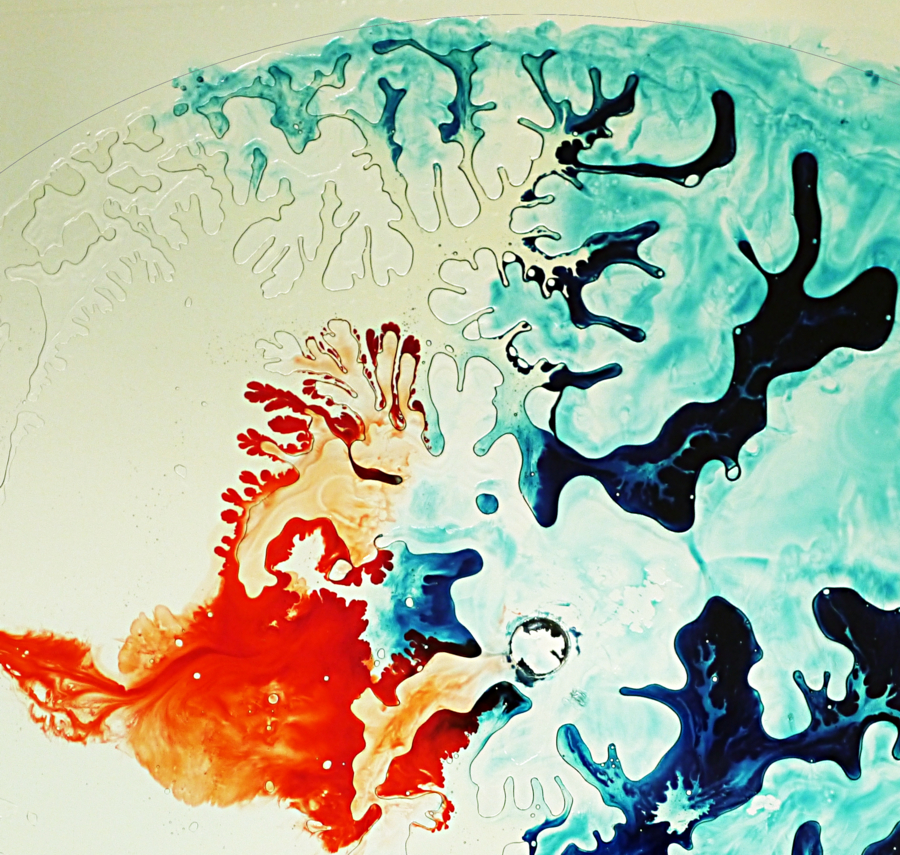By Eric Fauble, Alex Unger, Scott Hodges, and Zac Rice for Spring 2014 Team First.
Read the Report
Pressure gradients caused by squeezing and pulling the plates of a Hele-Shaw cell cause the Saffman-Taylor fingering instability in honey, air and dyed water.

Pressure gradients caused by squeezing and pulling the plates of a Hele-Shaw cell cause the Saffman-Taylor fingering instability in honey, air and dyed water.
Previous Post
Taylor-Saffman instability in a Hele-Shaw cell. The pressure of rapidly injecting water lifted the top sheet, inducing the instability around the outer edge of the honey as air entered.
Next Post
Dyed water injected into dyed corn syrup displays the Saffman-Taylor fingering instability in a Hele-Shaw cell.
Categories
Flow Vis Guidebook
- Introduction to the Guidebook
- Overview 1: Phenomena. Why Does It Look Like That?
- Overview 2: Visualization Techniques
- Overview 3: Lighting
- Overview 4 - Photography A: Composition and Studio Workflow
- Overview 4 - Photography B: Cameras
- Overview 4 - Photography C: Lenses - Focal Length
- Overview 4 - Photography C: Lenses - Aperture and DOF
- Overview 4: Photography D: Exposure
- Overview 4 - Photography E - Resolution
- Overview 5 - Post-Processing
- Clouds 1: Names
- Clouds 2: Why Are There Clouds? Lift Mechanism 1: Instability
- Clouds 3: Skew - T and Instability
- Clouds 4: Clouds in Unstable Atmosphere
- Clouds 5: Lift Mechanism 2 - Orographics
- Clouds 6: Lift Mechanism 3 - Weather Systems
- Boundary Techniques - Introduction
- Dye Techniques 1 - Do Not Disturb
- Dye Techniques 2 - High Visibility
- Dye Techniques 3 - Light Emitting Fluids
- Refractive Index Techniques 1: Liquid Surfaces
- Refractive Index Techniques 2: Shadowgraphy and Schlieren
- Particles 1- Physics: Flow and Light
- Particles 2: Aerosols
- Particles 3: In Water
- Particles 4 -Dilute Particle Techniques
- Art and Science
- TOC and Zotpress test
- Photons, Wavelength and Color
